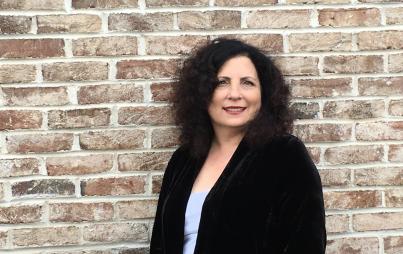
This is a guest post by Stephanie Nodd, a former prisoner. Read more stories as part of Ravishly's special Conversation series on women in prison here.
My name is Stephanie Nodd and I served 21 years and 56 days in a federal correctional institutional facility for conspiracy to possess with intent to distribute crack cocaine. On December 20, 1990, back when gasoline was $1 and no one knew what email was, I was sentenced to 30 years in prison—as a first time non-violent offender. All based on a government informant’s testimony. I was 23.
It was one of the worst days of my life.
I couldn’t understand how the federal system could so easily destroy someone’s life based on such limited testimony, just to get a conviction. Nor could I imagine having to part with my four children and mother—but that’s what I had to do when I was sent from my home in Mobile, Alabama to a federal correctional institution in Lexington, Kentucky on January 9, 1991.

It was in Boston that I was indicted on drug charges from Alabama, where I returned to take responsibility for my actions. I assumed that because of my clean record, minimal involvement in the selling, and willingness to cooperate, I would not have to serve time and be separated from my family. I didn't even have any drugs in my possession when I was arrested.
But I was sent to prison immediately and despite my crime being nonviolent—and my lack of a criminal record—I received my 30-year sentence.
In prison you meet women from all over the country doing hard time. When I entered the system, the biggest sentences were being served by women for crack cocaine offenses. The more time I spent in prison, the more I realized that many women were doing less time for essentially the same drug—powder cocaine.
I could never understand this. I could never understand how a system could be so unjust. I had a roommate who was busted with 479 kilograms of powder cocaine; she was sentenced to 11 years. During my 21 years in prison, I saw very few drug offenders come back—unless they were drug users, in need of rehabilitation.
Those committing white collar crimes, however, often returned to prison. Women who'd been convicted of crimes like embezzlement or credit card fraud got a slap on the wrist. Even though they were destroying people's credit, stealing other's identities and life savings, they were sentenced to a year or two in jail—not exactly hard time when compared with my sentence. And because the sentences were so small, they kept coming back.
Twelve years of my sentence I served at a federal prison in Coleman, Florida. The doors never locked and hours would go by without us seeing a guard. We basically took care of each other. Prisoners were housed with very little security, which is why I have a problem with our current system.
Having served two decades in prison, I believe prisons are wasting tax payers' money. It’s important that the federal system has an alternative program for first time offenders. Breaking up families, in the way mine was broken up, only causes increased suffering—with the children suffering the most. I missed out on being around for two decades of my children's lives; what good comes of this?
And it does not take 21 years for someone to learn from his or her mistake.
Just locking people up is not the answer. We need more rehabilitation in our system. We need big changes to right the injustices of sentencing. We need it for the people of our country.
I’m a living witness for all the flaws of the current federal system.
You can read more about Ms. Nodd's story in an article she wrote for the Chicago Tribune and support the work Families Against Mandatory Minimums does to combat unfair sentencing here.







